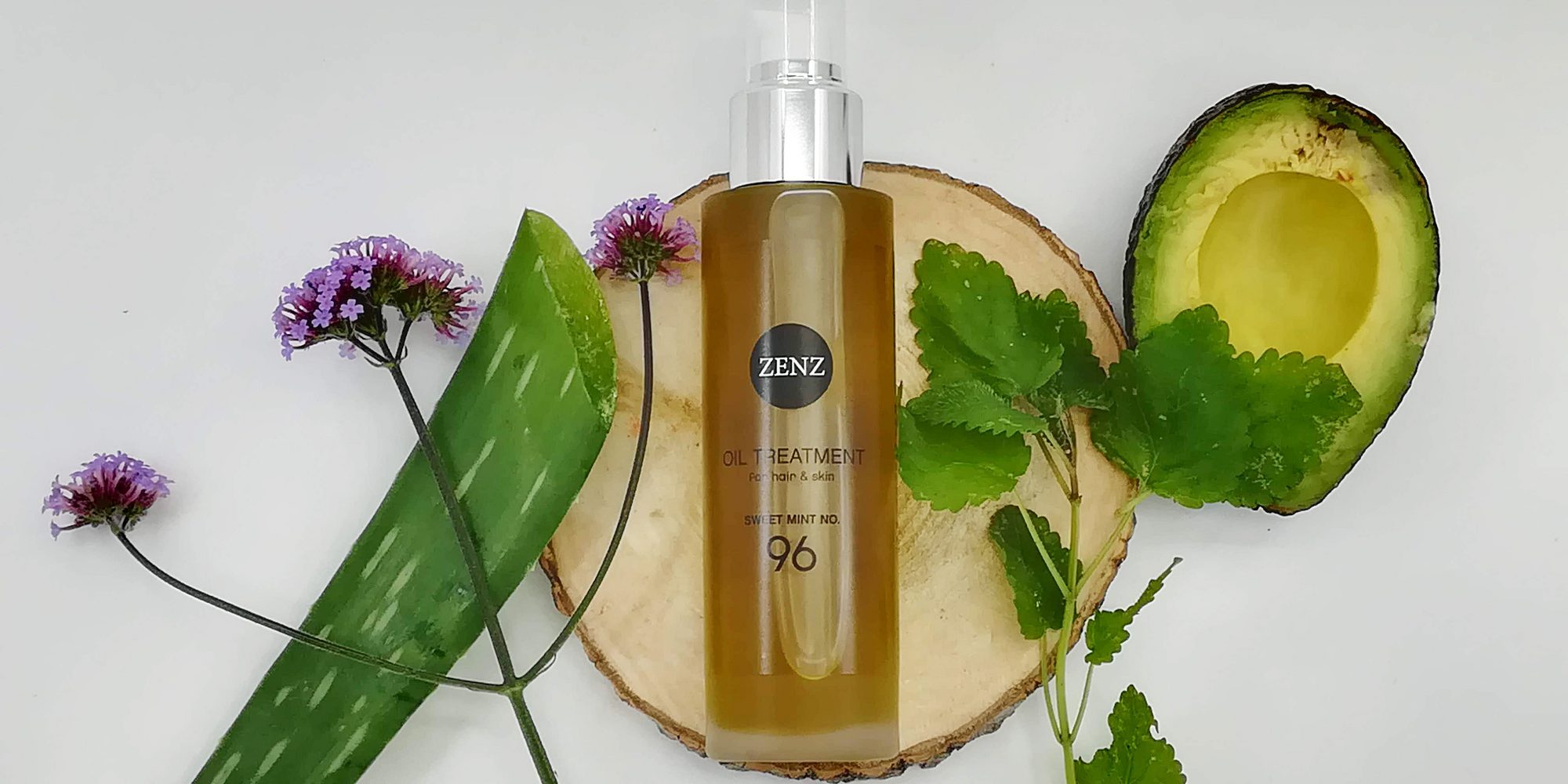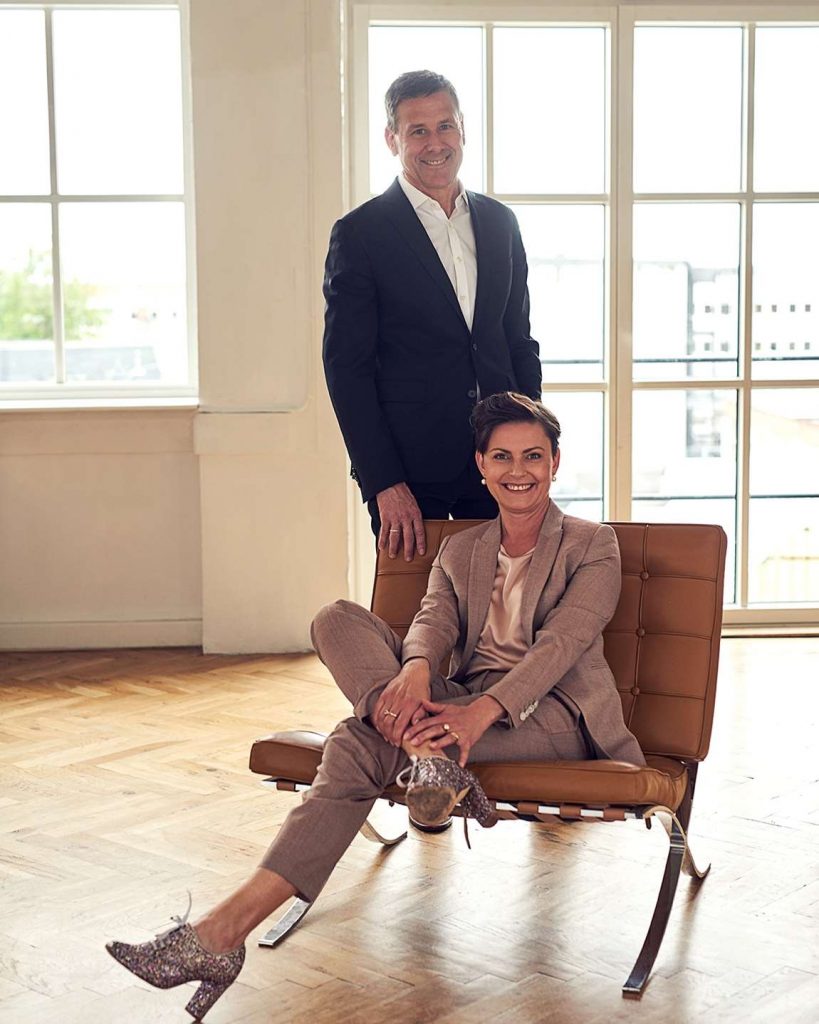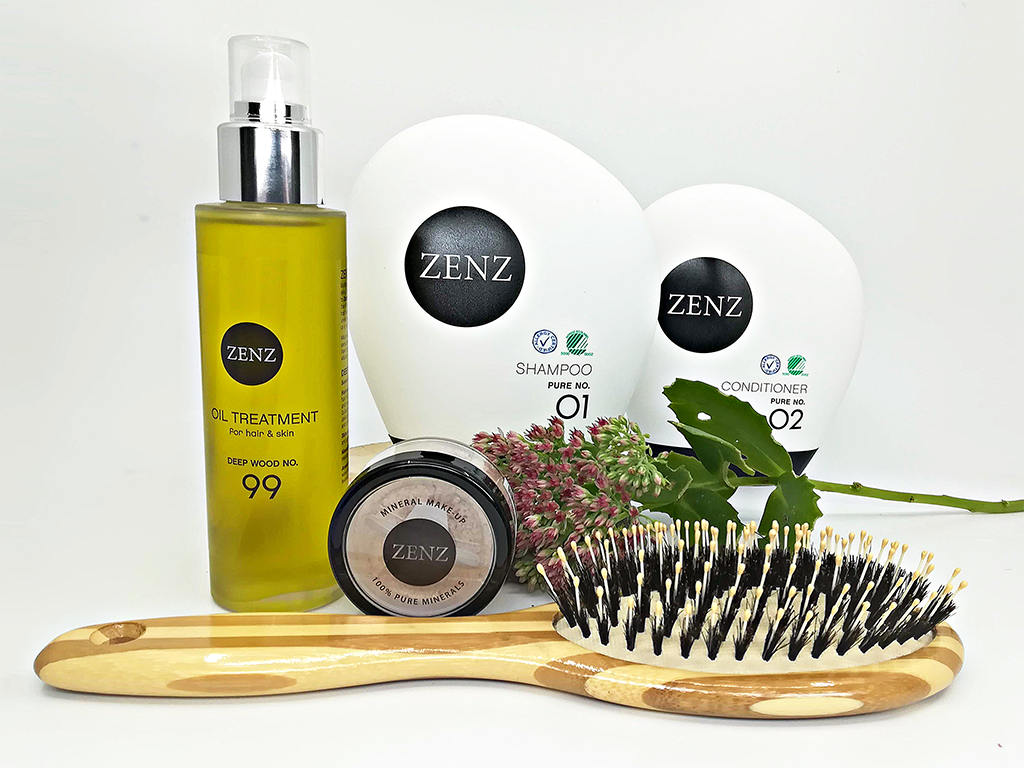
The Couple Behind Zenz Organic Products Is On A Mission To Make Salons Safer
Early in her career, Danish hairdresser Anne-Sophie Skjødt Villumsen suffered from allergies—but not run-of-the-mill shellfish or sunflower seed allergies. She was struck by severe reactions to chemically-laden salon products that threatened her chosen profession. Instead of giving up hairdressing, Villumsen decided to rid salon products of the chemicals that afflicted her—and went a step further by cleaning up the entire salon environment that housed them. She opened the first green hair salon in Denmark in 1999. Twenty years later, Zenz Organic Products has grown into a chain of nine sustainable green hair salons in the country as well as a robust product offering. The duo behind the brand have also set their sights on the United States for product distribution. Beauty Independent spoke to Villumsen and Jørgen Skjødt, Villumsen’s husband and the managing partner of Zenz, about the dangers the traditional salon model poses to stylists and clients, and how they’re building a thriving business to confront those hazards.
What led you to launch Zenz?
Villumsen: When I was starting the green salon back in 1999, it was quite new, and I couldn’t find anyone else who did the same as I did. I tried to find some other [clean] brands, but I couldn’t find any without the normal chemicals, so I started to try to start my own shop. I wanted to make a salon as clean as I could, [one] without any risks to working there, without any reason to cause allergies, disturb hormones or give you cancer. That was how I defined the ingredients in the products.
The [traditional] working environment for a hairdresser was not good. We started working together with scientists, with hospitals to try to find a way through this problem. At that time, we also got the green salon certification. That was about two things: it was about the health of the hairdresser and choosing the right ingredients, and the other part was to be more sustainable.
What does sustainability mean in the salon channel?
Villumsen: A lot hairdressers calling themselves green today are still using chemical hair colors. So, the certification has been very important to show people that this is a salon without chemical hair color systems because that is [one of] the most difficult things for hairdressers to change.
If you’re talking about the environment, it’s also what you have in your products, that you don’t use too much plastic or silicones in your products [and] instead use natural stuff, but natural ingredients that don’t cause allergies because that’s also one of the big issues. If you use natural ingredients, a lot natural ingredients can cause allergies. It’s important for us to choose ingredients very carefully. Also, [we consider] the environmental [impact] of the salon from printing our brochures on recycled paper to using organically grown flowers.
Skjødt: An external certification for us is very important because you can claim anything. There’s a lot of greenwashing in this industry. So, when we decided to make our own brand, we needed to have an external audit to show the differences from traditional salons.
We also try to help groups in need through social projects. We are collecting money for a project that helps young girls get off the streets, away from prostitution and into an education to be a hairdresser. We are always looking to be better than we were yesterday.

What were your main goals in creating the Zenz product line?
Villumsen: It’s very important that the quality of the product is very good so you can use it as a hairdresser. We have many salons using the products, and we have only Zenz products in our salons, so it’s important that hairdressers love to work with the products.
We’ve been working for so many years to [create] a better working environment for hairdressers. In Denmark, hairdressers only stay in the job for about eight years because they get allergies and, then, they stop working as a hairdresser. We want them to be able to keep working.
Skjødt: I think it’s about 25% of the population have allergies, and around 11% of that is coming from a contact allergy and 4% to 5% from a perfume allergy. That percent is increasing, and it’s increasing most for girls from four- to 12-years-old. It’s a huge problem.
“We’ve been working for so many years to [create] a better working environment for hairdressers. In Denmark, hairdressers only stay in the job for about eight years because they get allergies and then they stop working as a hairdresser. We want them to be able to keep working.”
Do the allergies increase over time?
Skjødt: Sometimes it builds up. Sometimes you get it the first time you use a hair product. Sometimes you get it when you have to done it for a long time. It’s also because you are standing with your hands in water all day and, then, you touch chemicals, and they go right into your wet hands. I think also it’s because of the parabens and preservatives you have in the products.
In Denmark, they have been testing hairdressers for a long time and, when you’re starting your education, you are healthier than normal. After only two years, they are sicker than other young people. Their health actually declines.
How much did it cost you to develop the product line?
Skjødt: We initial invested around 400,000 EUR to set up and develop Zenz Organic Products.
You have nine salons in Denmark as well as franchise salons. Are the franchise location in addition to the nine?
Skjødt: We have franchises in Norway, and one now in the Netherlands. Then, we have the one in Denmark and eight of our own salons in Copenhagen. So, we have nine salons in Denmark, where one is franchise. The franchise salons use our products, so it’s like going into one of our own salons. The main difference [with] a franchise salon is they own the salon themselves. They pay to use the Zenz concept and the name, the marketing material and the product.
When did you launch skincare and makeup, and why?
Villumsen: We launched haircare in 2010 and, then, a short time after, we launched the makeup. Then, in 2014/2015, we got the face cream and sunscreen.
Skjødt: We needed to have the haircare and makeup to operate our salons [for in-salon makeup applications].

How are the products priced for the American market?
Villumsen: The price is [comparable to] Aveda. The shampoos and conditioners are around $30 to $55 for about 250 milliliters.
What’s your approach to new product development?
Villumsen: From the start, we wanted to have a range of products that we could use in the salon to fulfill the needs of the hairdressers and the clients, the basics. We don’t want to make new products just to add new products.
The products are very functional, so you can mix them all together and, in that way, get more products. Sometimes, though, we see that we need something new, clients are asking for something. So, we are working on some new products now.
Skjødt: We have a [thermal] hat, Hairspa, that we just launched that in our salon channels. It’s for hair treatments or hair color and does not use any energy or electricity, which is, of course, more sustainable. You use your own [body heat] to warm it up. It heats up the hair so the color or treatment can go into the hair. It increases the effectiveness of treatments and can reduce color processing times.
What are some of your brand’s bestselling products?
Skjødt: Number One and Two, Shampoo and Conditioner without perfume, and Number Seven and Eight, our Deep Woods. Then, our Styling Paste Number Six and the Copenhagen Hair Powder Number 89.
Villumsen: The Numbers One and Two are for people who [are] very sensitive. So, if you have allergies or if you have children. The whole family can use it. And, then, the Seven and Eight are for people who have scalp problems or they are losing hair. We call it “destress” because a lot of people with stress lose hair. The Paste is for short hair and long hair, and can be used by men or women.
The Powder Number 89, you can use as a dry shampoo as well, but it’s a volume powder. You can use it instead of a salt water [spray] for big volume in the hair. If your hair is greasy, it will take some of the grease away.
In the U.S., it’s popular to infrequently wash hair and pile on dry shampoo. As a haircare professional, what do you think of that trend?
Villumsen: It’s not so good because dry shampoo has a lot of chemicals. If you don’t wash your hair, you can have problems with your scalp because there’s so much from the environment you need to wash out. Every second or third day, you need to have your scalp clean.
There is so much in the environment. If you clean your face every evening, you can see that. Even if you don’t have makeup on, your face is still not clean. It’s the same with your hair and your scalp.
What are your personal favorite products from your range?
Villumsen: I can’t live without my Deep Wood Oil. I use it for cleaning makeup off, I use it like a serum, I use it on my whole body. I’ve been using it for so many years. When I travel, I always have it with me. It’s my favorite.
Skjødt: Number One to wash my hair and body. Then, Number Six and Number 89 to style my hair. Then, I use the Oil Number 97 for shaving. You can use the oils for the hair, the body, for shaving, and you can combine them with Number 3, the treatment, to make a hair treatment. You can combine them with some of the makeup.
Villumsen: Yes, if you want to have a new foundation, you just mix the mineral powder with the oil and, then, you have a fluid foundation without any preservatives.
Skjødt: With our development partner, Anne-Sophie has developed the product line so everything can be used together. What we have today is Zenz version one. In the next year, we are working on Zenz version two, which will have more organic ingredients. Some of the products will be COSMOS-certified and will have Swan Ecolabel. We’re also working on a new packaging concept with more recycled packaging.
What is your salon clientele like?
Villumsen: It’s people who care about their health and care about the environment, people who eat healthy, the normal modern family. They have their first child, maybe they are pregnant. A lot of new customers start coming when they are thinking about having children. They start at Zenz when they are 25 to 30 year, and they continue to come as they get older.
We also have a lot of actors, businessmen and businesswomen. We work with modeling agencies in Denmark, so we do hair for Fashion Week, and we’ve been getting more fashion people in the salon. Fashion Week has increased our customer base significantly.
Skjødt: The salons are a premium brand in Denmark, very high-end. Zenz has been in the front of this journey of living sustainable and healthy since 2000. In Denmark, we are very far ahead in thinking about the environment and healthy living. Until four years ago, a lot of the education we did and advertising we did was what’s bad [for you], what’s good. Then, we changed that and said, “No, we are a fashion brand. We are professionals.” On top of that, we are healthy and sustainable. Once word got out, we started to get new types of customers.





Leave a Reply
You must be logged in to post a comment.